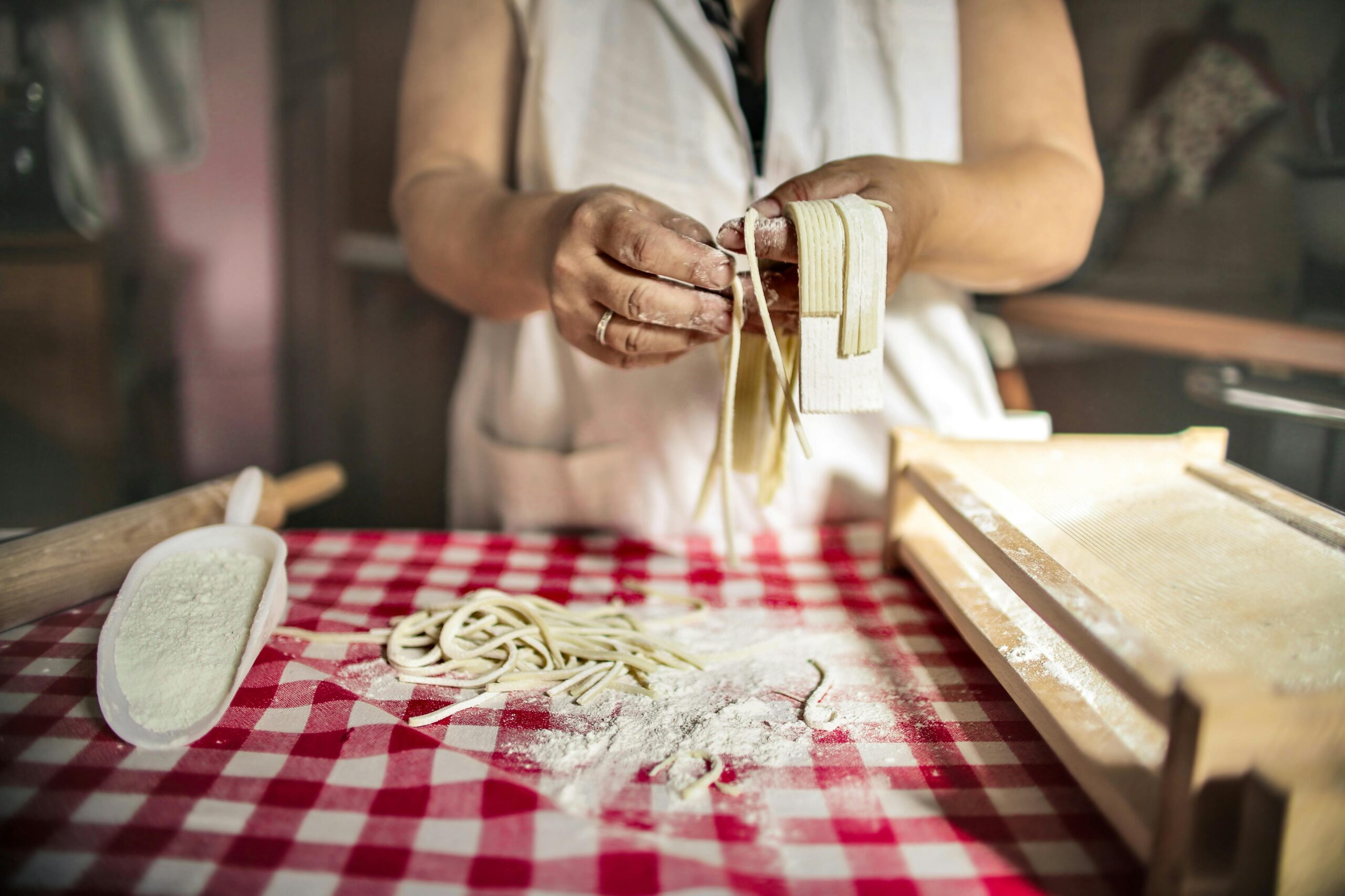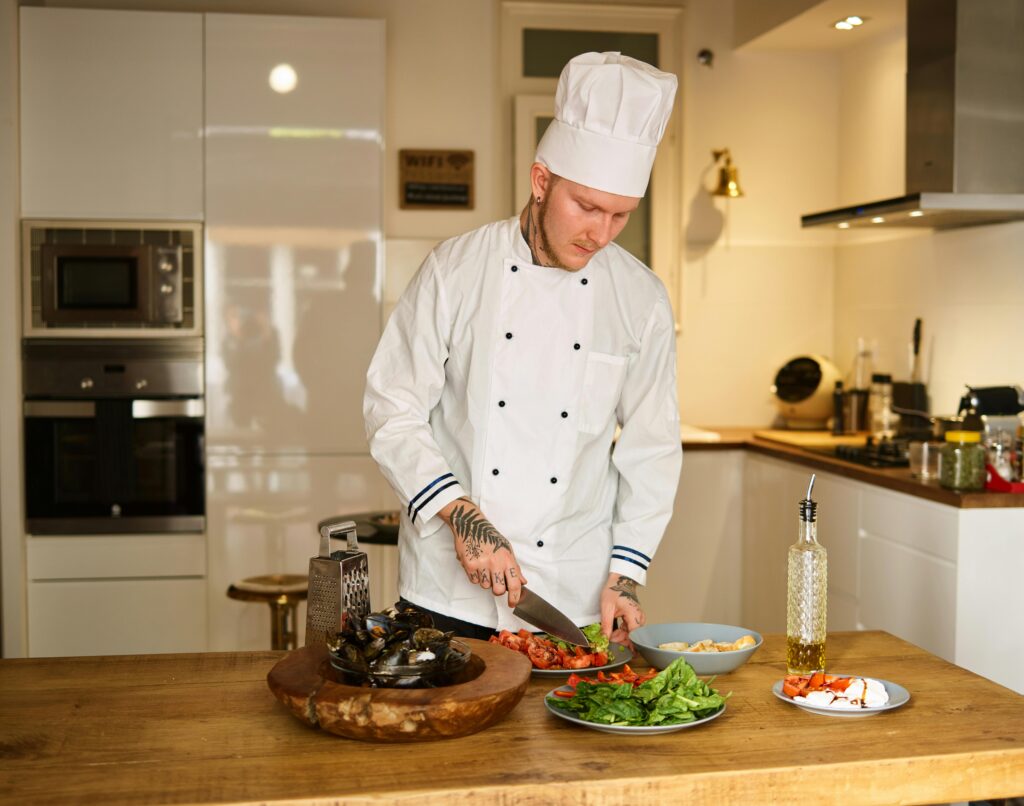How Long Is Culinary School? a Timeline for Future Chefs

You’ve made the exciting decision to pursue a culinary education, and now you’re exploring various school options. Amidst the plethora of choices, you may find yourself pondering a crucial question: How long does it take to complete culinary school?
Well, the answer is not as straightforward as one might hope. The duration encompasses a comprehensive range, incorporating time devoted to mastering fundamental principles, honing kitchen techniques, delving into advanced subjects, and acquiring invaluable hands-on experience.
In this article, we aim to provide insights from our experience so that you can better grasp the time commitment involved in culinary school, regardless of the specific culinary education path you choose.
How Long Does it Take to Finish Culinary School?
Embarking on the journey of culinary and cooking school can span a range of durations, from just a few brief months to a more comprehensive four years, contingent upon the selected program length. As you enroll in culinary school, various options are available, each influencing the duration of your studies. Professional culinary training, for instance, typically extends over a span of 2 to 4 years. The real challenge lies in selecting the program that aligns best with your aspirations and preferences.

Culinary education presents various pathways, each tailored to different preferences and aspirations. Here are the types of culinary school programs to consider:
1. Dedicated Culinary Schools:
- Specialized institutions exclusively focused on culinary arts.
- Offer comprehensive programs tailored to aspiring chefs.
- Provide immersive training in both theoretical and practical aspects of culinary arts.
- Typically cover a broad range of culinary techniques and styles.
2. Community Colleges:
- Provide certificate or degree programs with a more classroom-centric approach.
- Offer a blend of theoretical knowledge and practical skills.
- Community colleges may cater to those seeking a well-rounded culinary education in a less specialized setting.
- Programs may span varying lengths, from a few months to a couple of years.
3. Four-Year Degree Programs:
- Combine culinary arts with business and hospitality skills.
- Suitable for those aspiring to managerial roles or entrepreneurship in the culinary industry.
- A comprehensive education encompassing culinary techniques, business management, and hospitality.
- Typically involve a longer commitment, around four years, providing a deeper and more extensive understanding of the field.
Diploma or Certificate Programs:
- Offer a quicker route to gaining culinary skills for entry-level positions.
- Typically completed in about six to 12 months, depending on the program and the student’s time commitment.
- Blend classroom learning with hands-on experience to prepare students for real-world scenarios.
- May focus on specific areas of culinary arts, such as sauces, soups, baking, or specialized cuisines.
- Provide tangible credentials upon successful completion.
Choosing the right educational path depends on your career goals, time commitment, and preferred learning style. Whether you opt for a dedicated culinary school, community college, or a four-year degree program, each pathway offers unique advantages to shape your culinary expertise.
Degree Programs in Culinary Arts: Shaping Your Culinary Journey
Embarking on a culinary career involves making choices that align with your aspirations and educational preferences. College degree programs cater to aspiring chefs, offering a diverse array of options at the associate’s, bachelor’s, and master’s levels.
- Associate’s Degree:
- Duration: Typically two years.
- Curriculum: Balances general education classes like English and math with culinary-focused courses.
- Focus: Culinary theory, dish preparation, exposure to diverse cuisines.
- Specializations: Options include Culinary Arts, Professional Baking, and Restaurant Management.
- Financial Aid: Available, including student loans.
- Bachelor’s Degree:
- Duration: Four years.
- Curriculum: Builds on associate’s coursework, emphasizing business aspects like management and hospitality.
- Additional Training: Two extra years covering budgeting, inventory management, and staff supervision.
- Common Degrees: Culinary Arts, Culinary Management, Restaurant Management, and Hospitality.
- Unique Offering: Some institutions, like Johnson and Wales University, provide a Liberal Arts program for a broader knowledge base.
- Master’s Degree:
- Duration: Additional two years post-bachelor’s completion.
- Thesis Requirement: Completion of a thesis is typically mandatory.
- In-Depth Focus: Intensive exploration of culinary theory, concepts, and specialized areas such as nutrition and food science.
- Broad Spectrum: Options include Culinary Arts, Culinary Management, and Liberal Arts for a well-rounded education.
Each degree level offers distinct benefits, allowing you to tailor your culinary education to your desired depth and specialization. Whether you choose the hands-on approach of an associate’s degree, the business-oriented bachelor’s degree, or the in-depth exploration of a master’s program, you’ll discover a range of culinary training options at the college or university level to meet your educational needs.
Unlocking Culinary Success: Navigating Culinary Schools
Let’s face it – everyone begins at the bottom, but tales of triumph emerge from those humble beginnings. Culinary schools serve as the launchpad for many success stories, offering a comprehensive culinary education within a relatively short timeframe, propelling individuals swiftly into a new career. The application process for culinary schools is typically straightforward, providing accessible entry points for aspiring chefs.
Institutions like the Institute of Culinary Education go beyond traditional culinary programs, introducing specialized tracks such as Restaurant Management. This program hones in on the skills needed to “oversee, grow, open, or own a culinary business,” adding a valuable dimension to the educational experience.
CulinaryLab Cooking School adopts a unique hybrid approach, seamlessly blending hands-on culinary training with mentorship, apprenticeship, and job placement initiatives. Prioritizing immersion in the culinary industry, this approach expedites students’ integration into the professional realm. By pairing students with seasoned chef mentors, CulinaryLab ensures a profound understanding of the industry, offering real-world apprenticeships for practical experience.
Against the backdrop of the Bureau of Labor Statistics projecting a 10 percent growth in employment for chefs and head cooks from 2016 to 2026 – surpassing the average for all occupations – the timing couldn’t be better to embark on a culinary school journey. It’s not just an education; it’s a strategic move toward a flourishing career in the dynamic culinary landscape.

Are culinary degrees worth it?
If you find yourself teetering on the edge of the decision to attend culinary school, the considerations are indeed substantial. However, for those harboring a deep-seated passion for cooking and envisioning themselves flourishing in the pulsating energy of a kitchen, opting for culinary education stands as a prudent stride toward a gratifying career in the realm of gastronomy.
Undoubtedly, culinary school demands an investment of both time and finances. Yet, this investment holds the promise of yielding dividends in the form of expanded job prospects, honed professional skills, and invaluable industry connections. Even for seasoned culinary professionals, the decision to enroll in culinary school can act as a catalyst, propelling them to the next echelon of culinary mastery. It’s not just an educational pursuit; it’s a strategic move that has the potential to unlock a world of culinary possibilities.





